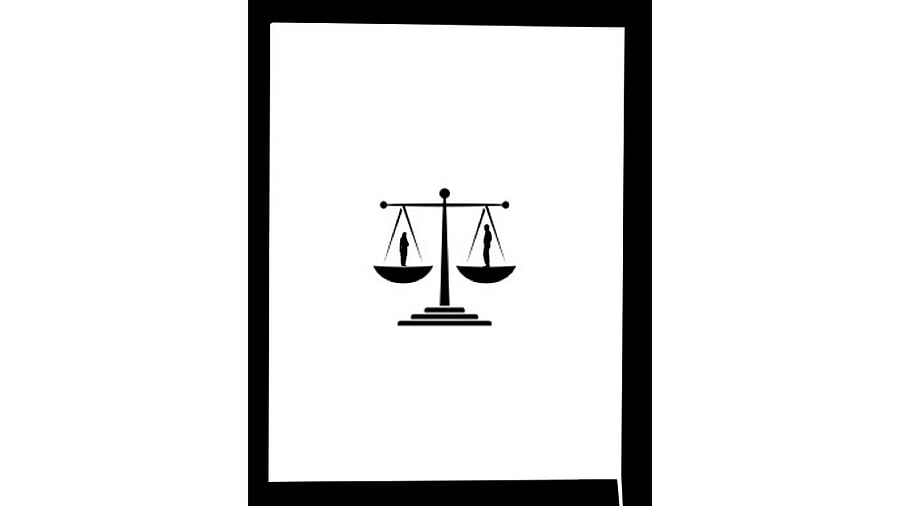
Uniform Civil Code is again being discussed. Even 75 years after becoming free from British rule, India continues to follow several laws and systems that the British made for the convenience of their rule in this country, which they needed to keep divided and subjugated. Personal laws are one such provision or concession they made, allowing the different religious communities to follow their own customs/social practices in matters such as marriage, divorce, maintenance, property matters, succession, inheritance, adoption, to which they gave the form of ‘laws’ or ‘personal laws’, i.e., personal to a religious community.
When it came to criminal laws, the British had a single set of laws – the Criminal Procedure Code -- to be uniformly applied, and rightly so, across British India. However, by allowing deviations in some civil matters, they could appease different communities and maintain the divisions in the already fragmented Indian society. We, in India, seem to still have a hangover of the colonial rule and continue to follow laws, many of which had no relevance even in the olden days and definitely have lost relevance in a modern society that is leaping ahead technologically and therefore correspondingly needs to transform in a big way to match the progress of technology.
We follow this archaic system of ‘personal laws’ based on religion; our democratically elected governments also emulate the British in using these laws to appease the opinion-makers in different communities, again with the intention of tightening their political hold by increasing the ‘ease of garnering votes’.
The British may have had an interest in splintering Indian society for obvious reasons. But we should have a single set of laws that all citizens should follow. ‘One India, one law’ should have happened immediately after Independence. Seventy-five years is too long a period to wait for it. The need for a uniform set of laws is urgent.
The justification given for the ‘personal laws’ for religious communities is that India is a ‘secular’ nation. The 42nd Amendment to the Constitution was enacted in 1976 and the Preamble to the Constitution mentions that India is a ‘secular’ nation. The meaning of the term ‘secular’ is taken to be “non-interfering in (personal) religious matters”. Each religion may specify certain laws regarding social matters like marriage, inheritance, etc. So, by this logic, followers of Islam will have one set of special or personal laws, Hindu religionists will have another, etc. This means, we have a number of alternate judicial systems, which is detrimental to the unity of the nation and to the proper functioning of the State.
The world has gone ahead in terms of equality of people. ‘Gender equality’ is an important issue that impacts half the human population. A ‘personal law’ that denies equal rights to women is certainly not acceptable. LGBTQ+ rights are another burning issue. A ‘personal law’ that does not even accept the existence of different sexual orientations hinders the growth of a country socially and economically as it wastes human potential. A country that aspires to march ahead in human quality cannot afford to have clan-ish and exclusionary ‘personal laws’.
The word ‘secular’ has been misinterpreted in India. Actually, the dictionary meaning of ‘secular’ is: “separation of religion from the State”. In the olden days in the western world, the Church used to interfere, even dictate, to the King in the affairs of the State. Hence, there arose a need for a ‘secular’ State i.e., a State that is not influenced in its affairs by religion. Religion should be far from the affairs of the State. In contrast, India allows portions of the functions of the State to be dictated by religion. Therefore, India is not really a ‘secular’ nation. Religion has a huge role in the actual functioning of India as a society and as a nation. In fact, in India the involvement of the State with religion in order to protect so-called ‘secularism’ is quite prominent. We thus call ourselves secular while we do the exact opposite. Our views on religion and State point to a parochial side of our nation.
It is true that each part of our society would like to retain its individuality. The nation, too, should not and does not wish the individual independent glory of the segments to be submerged. However, independence is not anarchy. The phrase ‘unity in diversity’ starts with the word ‘unity’. Diversity should add to the unity and not diminish it.
Instead, certain segments of our society are asking for diversity at any cost to the nation. In their quest for ‘religious identity’, their demand is for ‘exclusion’ and separate existence. What they do not comprehend is that by asking for separate or personal laws, they are not advancing their cause of retaining identity. Instead, they are creating conditions for weakening the bonds of affection and goodwill between themselves and the other groups.
Even as individual parts, these are hindering their own progress by having personal laws that deny freedom to their womenfolk. It is to be realised that their womenfolk are first and foremost citizens of India, and then anything else. Denying the women their equal rights would be a hurdle in the nation’s progress socially and economically. The nation cannot afford to lose the talents of half the population just to mollify the mistaken feeling of ‘discrimination’. The more they remain separate, the more would be the feeling of being discriminated against. The government is ill-advised to perpetuate such a situation by continuing to allow civil laws personal to each religion. Bringing in a Uniform Civil Code across the nation is essential.
(The writer is a former Professor, Indian Institute of Management, Bengaluru)